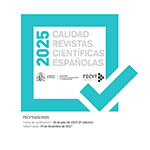Luxemburg and Gramsci. The Role of Optimism and Pessimism during the Struggle for an Alternative to Capitalism
Résumé
What I try to do in this paper is to analyze and probe what Rosa Luxemburg and Antonio Gramsci understand by pessimism and optimism. Luxemburg and Gramsci demonstrate how liberal capitalist ideology uses “a false form of hope to keep people yoked to the system that oppresses them.” In this “terrible world” and under the current capitalist circumstances which lead to economic, social, political and ecological crises, it may be difficult to be optimistic about the future. Besides, not only the multiple crises but also the many defeats suffered by progressive movements in the different areas of struggles against ongoing economic and political regression bring along a depressive and desperate feeling that could also be called pessimism. </p><p>The questions I am asking are very simple: What is pessimism and optimism for Luxemburg and Gramsci? For them, what sort of social conditions lead to pessimism or optimism? In this paper, I will try to demonstrate that both Rosa Luxemburg and Gramsci adopted a dialectical approach to pessimism and optimism, they were “pessoptimists” so to speak. Based upon what Hegel once said, “the negative is just as much positive”, I will explain this dialectical relationship by claiming that pessimism exists in optimism and vice versa. For this purpose, I will focus on some of Rosa Luxemburg’s texts in the recently published volumes on Revolution as well as in her letters. Furthermore, I will concentrate on some texts by Gramsci in which he makes particular reference to pessimism and optimism as symbolized by his famous “pessimism of the intelligence, optimism of the will”
Téléchargements
##submission.format##
Licence
La revista Las Torres de Lucca. International Journal of Political Philosophy, para fomentar el intercambio global del conocimiento, facilita el acceso sin restricciones a sus contenidos desde el momento de su publicación en la presente edición electrónica, y por eso es una revista de acceso abierto. Los originales publicados en esta revista son propiedad de la Universidad Complutense de Madrid y es obligatorio citar su procedencia en cualquier reproducción total o parcial. Todos los contenidos se distribuyen bajo una licencia de uso y distribución Creative Commons Reconocimiento 4.0 (CC BY 4.0). Esta circunstancia ha de hacerse constar expresamente de esta forma cuando sea necesario. Puede consultar la versión informativa y el texto legal de la licencia.







